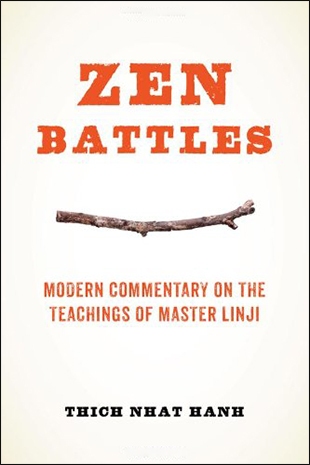"As I see it, there isn't so much to do. Just be ordinary — put on your robes, eat your food, and pass the time doing nothing."
— Master Linji, Teaching 18
Thich Nhat Hanh has great respect for this spiritual sage who lived during the Tang dynasty in China. He eventually left Buddhist studies in order to follow true Zen practice. But he refused the title of Zen master and preferred to be called a "good spiritual friend." Why has Nhat Hanh chosen to focus on this figure? He writes:
"The purpose of Master Linji's work is to help us cease all our seeking and come back to ourselves in the present moment. That's where we can find everything we're looking for, whether it's Buddha, perfect understanding, peace, or liberation."
In his book, Master Linji constantly shocks his students so they can experience for themselves the joy and fulfillment of being in the present moment. He also does all he can to stop them from digesting so many teachings. Master Linji refers to these monks as goats. Another danger is being too attached to one's understanding or faith in the Buddha. In summary of this blunt teacher's work, Thich Nhat Hanh suggests writing these eight words on a sign which you can see at any time during the day:
"Wherever you are, you are your true person."
